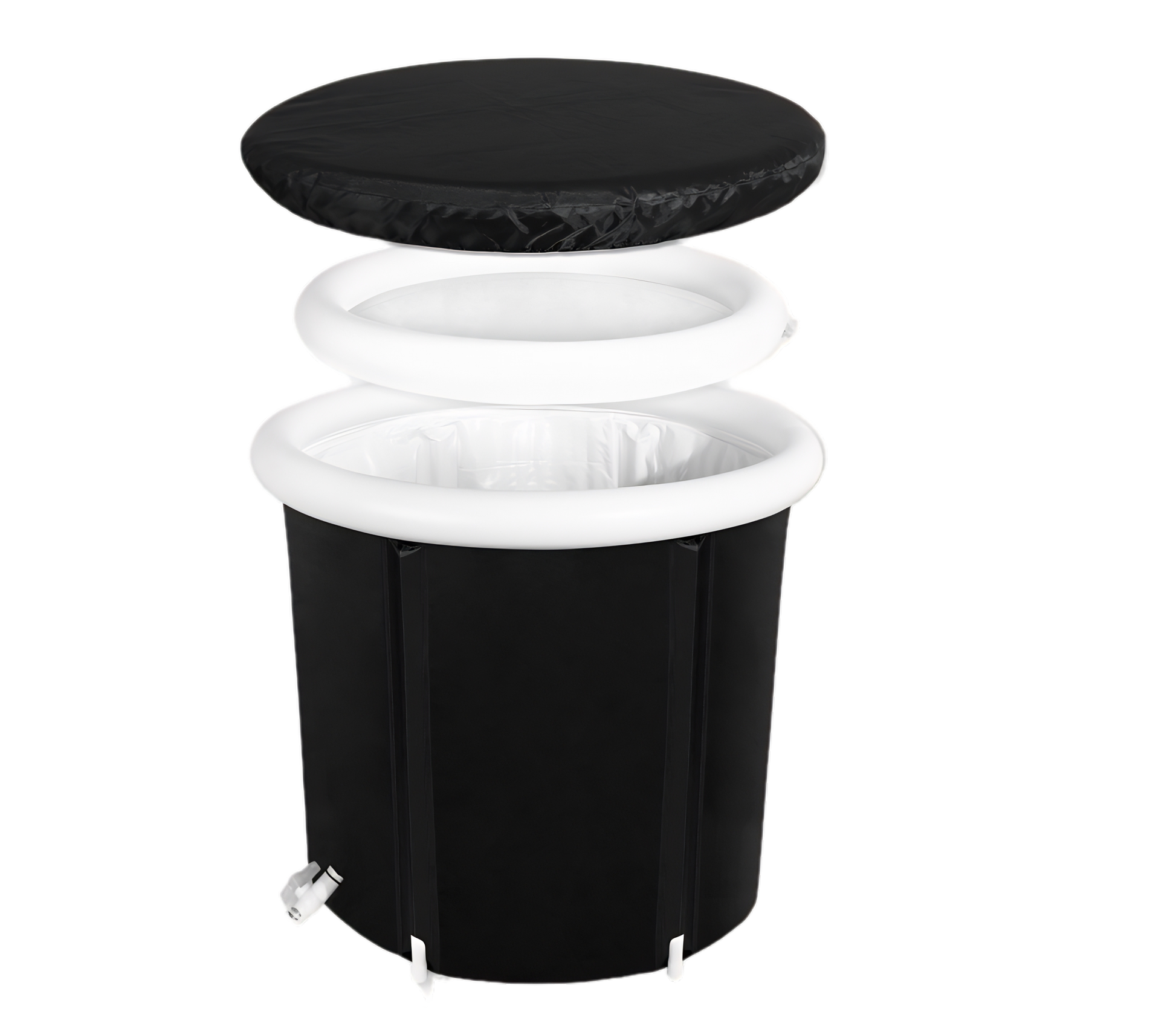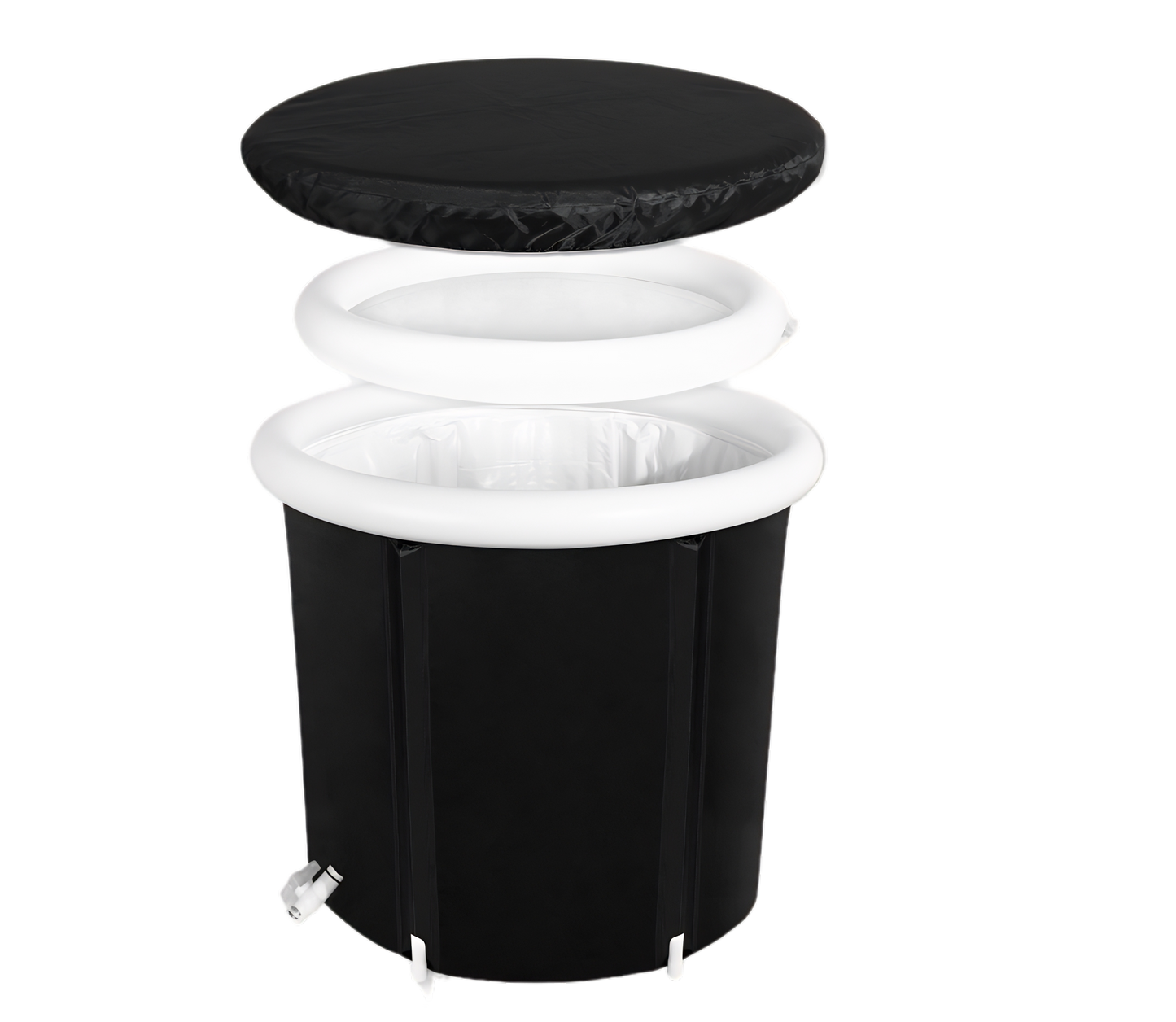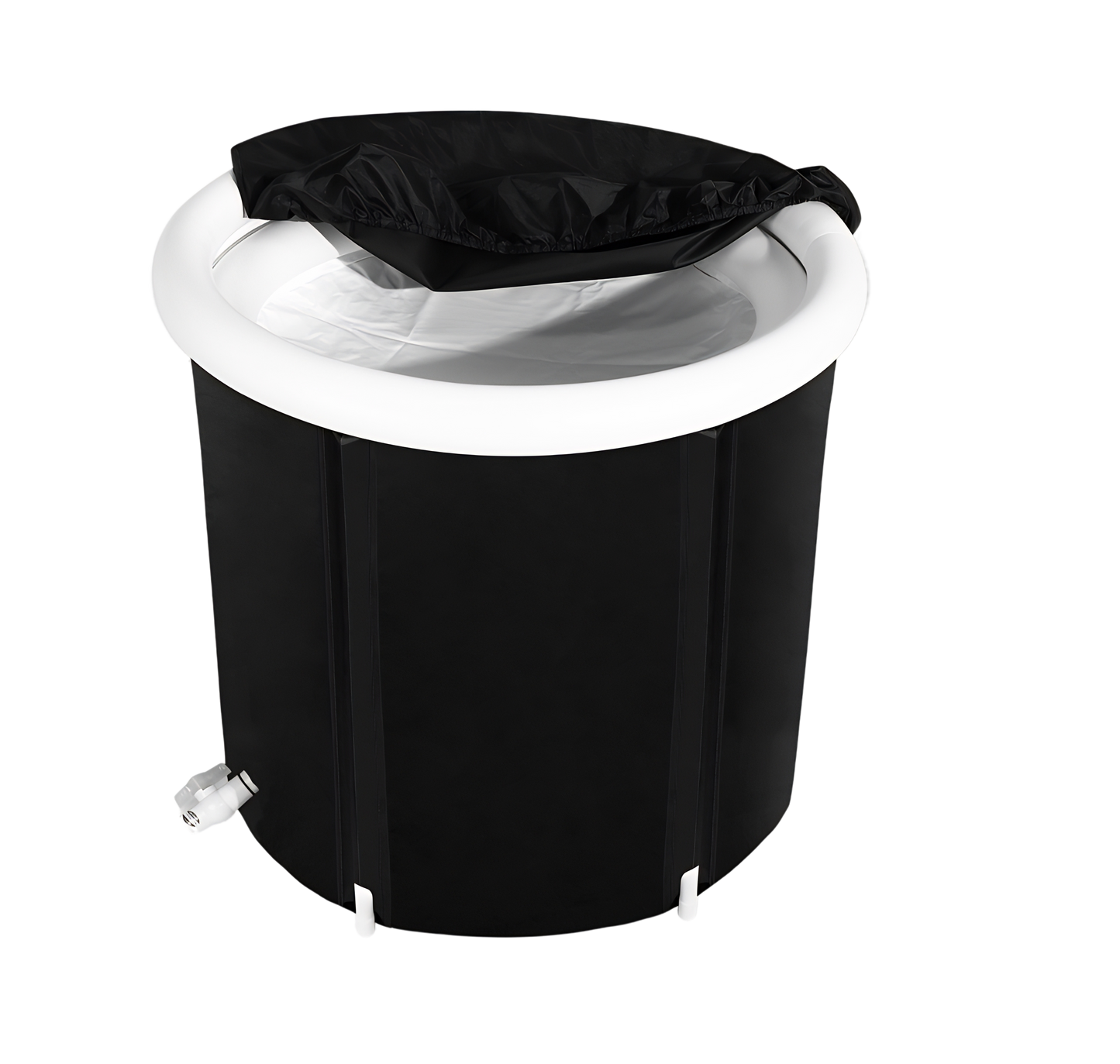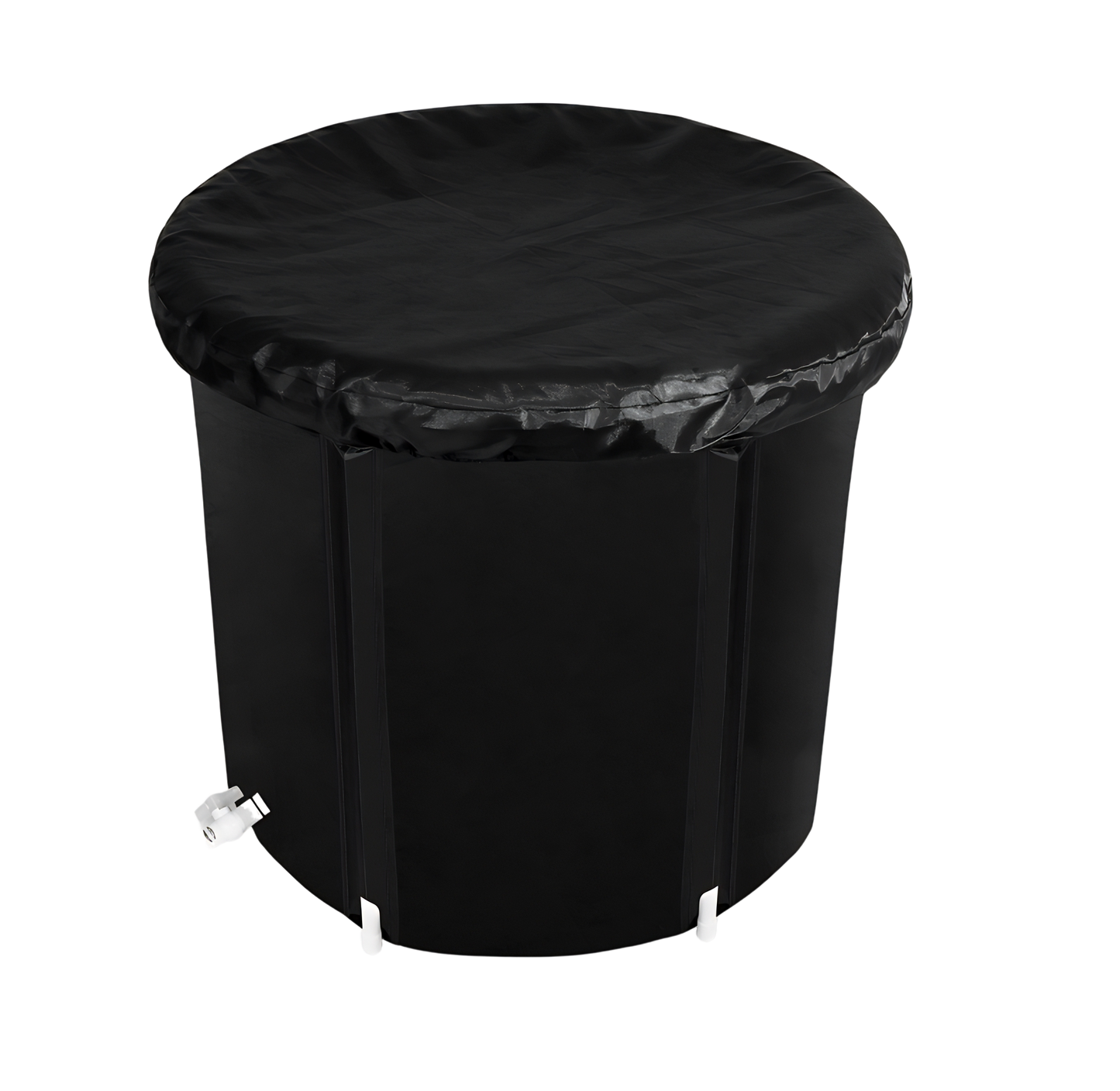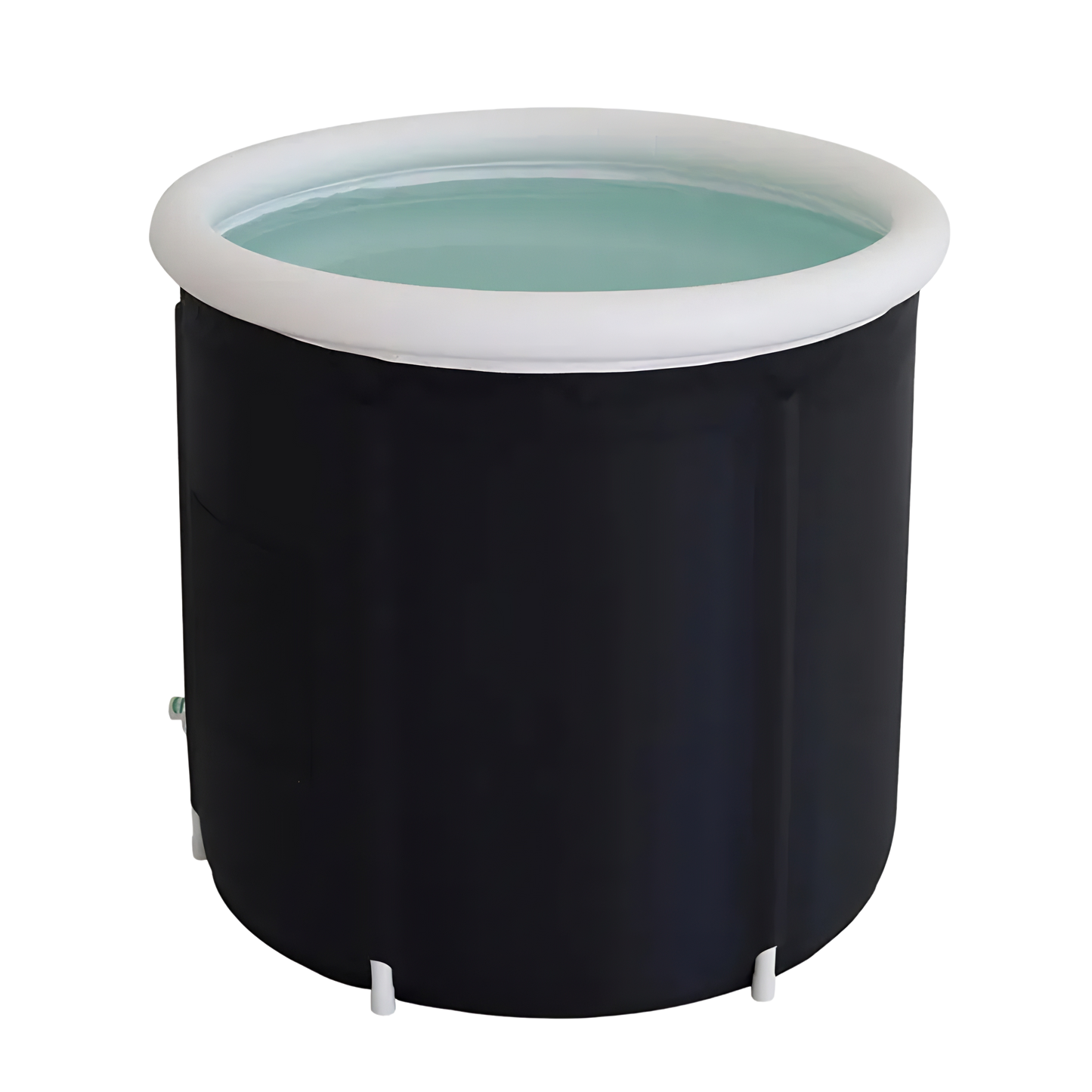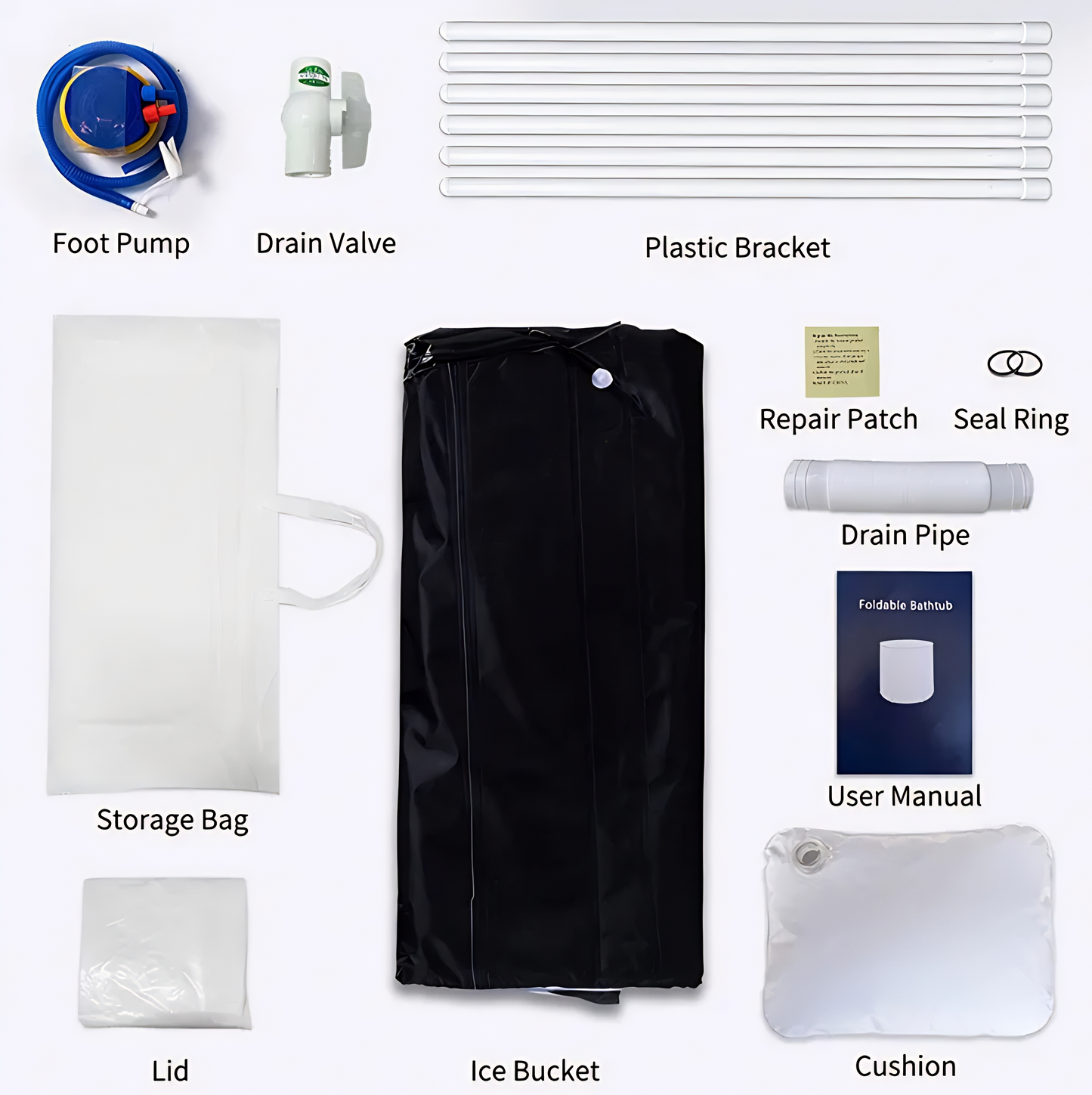In this article, we'll compare ice baths and warm baths during pregnancy, highlighting their benefits and drawbacks. We'll explore how ice baths can reduce inflammation and improve circulation, and how warm baths offer comfort and relaxation. Key considerations include temperature safety for both mother and baby. Our goal is to equip expectant mothers with the knowledge to make a safe, informed choice about their bathing preferences during pregnancy.
Key Takeaways:
- Ice baths and warm baths are contrasting options for pregnant women.
- Ice baths may offer reduced inflammation and improved circulation.
- Warm baths provide comfort and relaxation during pregnancy.
- Temperature considerations are important for maternal and fetal health.
- Understanding the risks and precautions is crucial for making an informed decision.
- Always consult a healthcare professional before undertaking any cold water therapy whilst pregnant.
Understanding the Basics: What You Need to Know
In this section, we'll cover the essentials of ice and warm baths during pregnancy. We'll discuss how ice baths can reduce inflammation and improve circulation, and how warm baths offer relaxation and stress relief. Key is understanding temperature safety for both mother and baby, enabling expectant mothers to make informed decisions about their bathing choices during pregnancy.
Ice Baths: Potential Benefits for Pregnant Women
Ice baths can offer several benefits for pregnant women. Here are a few potential advantages:
- Reduced inflammation: Ice baths can help alleviate swelling and reduce inflammation in the body.
- Muscle soreness relief: The cold temperature of ice baths can provide relief from muscle soreness and aches, which are common during pregnancy.
- Improved circulation: Immersing in cold water can enhance blood flow and circulation, promoting overall health and well-being.
Warm Baths: Comfort and Relaxation During Pregnancy
Warm baths can provide expectant mothers with comfort and relaxation. Here are a few advantages of warm baths during pregnancy:
- Stress relief: Warm baths can help reduce stress and anxiety, allowing pregnant women to relax and unwind.
- Pain management: The heat from warm baths can alleviate pregnancy-related aches and pains, such as backaches and joint discomfort.
- Improved sleep: Taking a warm bath before bedtime can promote better sleep, which is essential for pregnant women.
Temperature Considerations for Maternal and Fetal Health
When it comes to bathing during pregnancy, temperature is a crucial factor to consider. Here are some temperature considerations for maternal and fetal health during bathing:
- Avoid hot baths: High temperatures can potentially harm the baby, so it is important to avoid hot baths or saunas during pregnancy.
- Maintain a comfortable temperature: The water temperature should be lukewarm or slightly warm, ensuring both the mother and the baby are safe and comfortable throughout the bath.
- Check with your healthcare provider: If you have any concerns or questions about the temperature of your baths during pregnancy, it is always best to consult with your healthcare provider.
|
Benefits of Ice Baths During Pregnancy |
Advantages of Warm Baths During Pregnancy |
Temperature Considerations for Maternal and Fetal Health |
|
Reduced inflammation |
Stress relief |
Avoid hot baths |
|
Muscle soreness relief |
Pain management |
Maintain a comfortable temperature |
|
Improved circulation |
Improved sleep |
Check with your healthcare provider |
Ice Baths vs. Warm Baths During Pregnancy
When it comes to choosing between ice baths and warm baths during pregnancy, it's important for expectant mothers to understand the differences and weigh the pros and cons of each option. By evaluating factors such as pain relief, relaxation, and safety, pregnant women can make an informed decision that promotes their overall well-being.
Pain Relief: Ice baths are often favored for their potential to reduce inflammation and provide relief from muscle soreness. The cold temperature can help numb pain and reduce swelling. On the other hand, warm baths offer relaxation and can help alleviate general discomfort associated with pregnancy.
Relaxation: Warm baths are known for their soothing properties, helping pregnant women unwind and alleviate stress. The warm water can provide a sense of comfort and relaxation, supporting overall well-being during pregnancy. In contrast, ice baths may not offer the same level of comfort but are often chosen for their rejuvenating and invigorating effects.
Safety: Safety is a crucial consideration when choosing between ice baths and warm baths during pregnancy. While ice baths may pose a risk of decreased blood flow to the fetus due to the cold temperature, warm baths need to be maintained at a safe temperature to prevent overheating, which can be harmful to both the mother and the baby. It's important to consult with a healthcare professional and follow safety guidelines when considering either bathing option.
|
Comparison |
Ice Baths |
Warm Baths |
|
Pain Relief |
Offers relief from inflammation and muscle soreness |
Provides relaxation and alleviates general discomfort |
|
Relaxation |
Rejuvenating and invigorating effects |
Soothing and stress-relieving properties |
|
Safety |
May pose a risk of decreased blood flow to the fetus |
Needs to be maintained at a safe temperature to prevent overheating |
In conclusion, when choosing between ice baths and warm baths during pregnancy, it's essential for expectant mothers to consider their individual preferences and safety guidelines. While ice baths may offer pain relief and an invigorating experience, warm baths provide relaxation and comfort. By understanding the differences and weighing the pros and cons, pregnant women can select the bathing option that best suits their needs and promotes their overall well-being during pregnancy.
Evaluating the Risks and Precautions for Bathing While Pregnant
Safety is a crucial aspect to consider when deciding to take baths during pregnancy. As expectant mothers prioritize their health and the well-being of their baby, it is important to be aware of the potential risks and take necessary precautions while bathing.
Are Ice Baths Safe During Pregnancy: Expert Insights
Ice baths have gained popularity for their potential benefits in reducing inflammation and improving circulation. However, it is essential to evaluate their safety during pregnancy. Expert insights suggest that the use of ice baths during pregnancy should be approached with caution. Factors such as temperature, duration of exposure, and individual health conditions must be taken into account. It is advisable to consult with a healthcare professional before incorporating ice baths into your pregnancy routine to ensure it is safe for you and your baby.
Read more in our detailed article: How to do Ice Baths While Pregnant.
Benefits of Warm Baths During Pregnancy: Are There Any Downsides?
Warm baths are known for providing comfort and relaxation, which can be beneficial for pregnant women. However, it is important to be aware of any potential downsides. While warm baths can offer temporary relief from aches and pains, excessive heat can be harmful to the developing fetus. To ensure safety, it is recommended to avoid hot temperatures that may raise the body temperature above 100°F (38°C) for prolonged periods. As with any pregnancy-related decisions, it is always best to consult with your healthcare provider to determine the temperature range that is safe for you and your baby.
Ice Baths for Pain Relief: Analyzing the Safety Profile
Ice baths are often sought after for their potential pain-relieving properties. However, it is crucial to analyze the safety profile of using ice baths for pain relief during pregnancy. While cold therapy can help reduce inflammation and numb sore muscles, the duration of exposure and temperature should be carefully monitored. Prolonged exposure to extremely cold temperatures can cause vasoconstriction and may potentially affect blood flow to the baby. It is essential to follow proper guidelines and consult with your healthcare provider before incorporating ice baths for pain relief during pregnancy.
Warm Baths for Relaxation: Balancing Temperature for Pregnancy Safety
Warm baths provide relaxation and can be beneficial for pregnant women who experience stress and discomfort. However, it is important to prioritize pregnancy safety by balancing the temperature of the bathwater. The ideal water temperature for a warm bath during pregnancy is around body temperature, approximately 98°F (37°C). This ensures that the bath is relaxing without posing a risk of overheating. As always, consulting with a healthcare professional will help you determine the suitable temperature for your warm baths to maintain a safe and relaxing experience.
By understanding the risks and precautions associated with bathing during pregnancy, expectant mothers can make informed decisions that prioritize their safety and the well-being of their baby. It is crucial to consult with a healthcare provider to assess individual conditions and determine the best bathing practices for a safe and comfortable pregnancy experience.
Conclusion
After weighing the pros and cons of ice baths and warm baths during pregnancy, it is clear that both options have their advantages and considerations. The decision of whether to choose an ice bath or a warm bath ultimately depends on the individual preferences and safety concerns of expectant mothers.
Ice baths offer potential benefits such as reduced inflammation and improved circulation, making them appealing for pregnant women seeking relief from muscle soreness and discomfort. On the other hand, warm baths provide comfort and relaxation, helping to alleviate stress and promote a sense of well-being during pregnancy.
When deciding between ice baths and warm baths, it is essential to prioritize safety. Expert insights suggest that ice baths can be considered safe during pregnancy when temperature, duration, and individual health conditions are taken into account. Similarly, warm baths can be used for relaxation, as long as the temperature is balanced to ensure pregnancy safety.
To make an informed decision for bathing during pregnancy, expectant mothers should consider their personal preferences, consult with healthcare professionals, and take necessary precautions to ensure the well-being of both themselves and their baby. By understanding the benefits and potential drawbacks of both ice baths and warm baths, pregnant women can choose the bathing option that aligns with their needs and promotes a healthy and enjoyable pregnancy experience.
FAQ
Are ice baths safe to take during pregnancy?
Expert insights suggest that ice baths may not be safe during pregnancy due to the extreme cold temperature. It is important to consult with your healthcare provider before considering ice baths for pain relief during pregnancy.
Read more in our detailed article: Are Ice Baths Safe When Pregnant?
Read more detailed information in this Australian Government Publication: Pregnancy Care Guidelines
What are the potential benefits of warm baths during pregnancy?
Warm baths provide comfort and relaxation, which can help alleviate stress and promote a sense of well-being during pregnancy. They can also help relieve muscle soreness and promote better sleep.
How do ice baths compare to warm baths during pregnancy?
Ice baths and warm baths have different benefits. Ice baths can help reduce inflammation and improve circulation, while warm baths provide relaxation and comfort. The choice depends on individual preferences and specific needs during pregnancy.
What safety considerations should be taken when bathing during pregnancy?
It is essential to take temperature, duration, and individual health conditions into account when bathing during pregnancy. Consult with your healthcare provider to ensure the safety of both the mother and the baby.
Can pregnant women use ice baths for pain relief?
It is generally not recommended for pregnant women to use ice baths for pain relief. The extreme cold temperature can pose risks to the mother and the baby. Always consult with your healthcare provider before using any pain relief methods during pregnancy.

